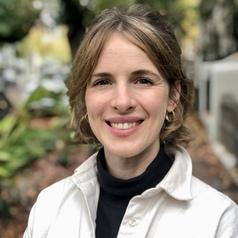
Elianor Gerrard
Senior Research Consultant, Institute for Sustainable Futures, University of Technology Sydney
Dr Elianor Gerrard is a Senior Research Consultant working in the Energy Futures team at the Institute for Sustainable Futures. She is a social scientist and development practitioner. Her research focuses on community participation, ownership and social justice in the energy transition. At ISF, Elianor works on projects related to workforce projections, modelling and policy for the clean energy sector. Prior to becoming an energy researcher, Elianor worked in education, communications and community development across Australia and in Spain, Indonesia and Nepal.
Less ![]()

Elias Rugen
PhD Candidate, Department of Earth Sciences, UCL
Elias is a PhD student in the Department of Earth Sciences at UCL. His PhD project is titled: Understanding Earth’s carbon cycle through the Proterozoic. The project will aim to address questions such as: 1) What were the dominant geological and/or biological drivers for the major carbon isotope excursions during the Proterozoic?
2) Did environmental factors, such as oxygen levels, hinder the emergence and diversification of complex life?; and 3) Was the Mesoproterozoic a time of carbon isotope stability and thus Earth system stasis? This research will result in a seawater carbon isotope curve for the Proterozoic that can be used for constraining ages for sedimentary successions that lack radiometric dating capabilities and/or age diagnostic fossils.
Less ![]()

Elie Lunanga
Researcher, University of Antwerp
Elie Lunanga is a Researcher at the Institute of Development Policy, University of Antwerp. His current research interests include health, energy, natural resources, conflicts and development project evaluation in fragile countries.
Less ![]()
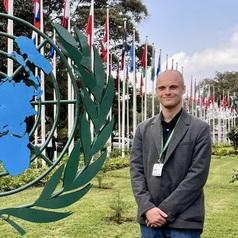
Élie Pédarros
Research Associate, School of Natural and Environmental Sciences, Newcastle University
Élie Pédarros is a Postdoctoral Research Associate based at Newcastle University within the Conservation and Biodiversity Consortium of Academic Institutions (CASCADE).
His main interests are social-ecological systems, human-wildlife coexistence and knowledge exchange processes for conservation.
Less ![]()
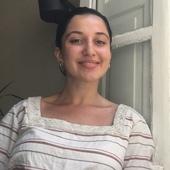

Elija Perrier
Research Fellow, Stanford Center for Responsible Quantum Technology, Stanford University
Less ![]()

Elijah Anderson
Professor of Sociology and African American Studies, Yale University
Dr. Elijah Anderson is the Sterling Professor of Sociology and of African American Studies at Yale University, and a Stockholm Prize Laureate in Criminology. His most recent publications are “Black Success, White Backlash,” (The Atlantic, November 2023), an introduction to a new edition of W. E. B. Du Bois’ The Philadelphia Negro (The University of Pennsylvania Press, 2023), and “The Fault Lines of Race and Space”: an interview by Jelani Cobb, published online in Vital City on 4/28. Other publications include “The Benevolent Despot” in the DuBois Handbook (forthcoming from Oxford University Press); Black in White Space: The Enduring Impact of Color in Everyday Life (2022); Code of the Street: Decency, Violence, and the Moral Life of the Inner City (1999), winner of the Komarovsky Award from the Eastern Sociological Society; Streetwise: Race, Class, and Change in an Urban Community (1990), winner of the American Sociological Association’s Robert E. Park Award for the best published book in the area of Urban Sociology; the classic sociological work, A Place on the Corner (1978; 2nd ed., 2003); and The Cosmopolitan Canopy: Race and Civility in Everyday Life, (2011).
Professor Anderson is the recipient of numerous awards, including the 2017 Merit Award from the Eastern Sociological Society and three prestigious awards from the American Sociological Association, including the 2013 Cox-Johnson-Frazier Award, the 2018 W.E.B. DuBois Career of Distinguished Scholarship Award, and the 2021 Robert and Helen Lynd Award for Lifetime Achievement.
Dr. Anderson has served on the Board of Directors of the American Academy of Political and Social Science and is formerly a vice-president of the American Sociological Association. He has served in an editorial capacity for a wide range of professional journals and special publications, including Qualitative Sociology, Ethnography, American Journal of Sociology, American Sociological Review, City & Community, Annals of the American Academy of Political and Social Science, and the International Journal of Urban and Regional Research. He has also served as a consultant to a variety of government agencies, including the White House, the United States Congress, the National Academy of Science and the National Science Foundation.
Additionally, he served as a member of the National Research Council’s Panel on the Understanding and Control of Violent Behavior. In 2021, he was awarded the Stockholm Prize in Criminology, the world’s most prestigious award in the field.
Less ![]()

Elimma C. Ezeani
Senior Lecturer, Private and Commercial Law / Researcher in International Law and Trade, Brunel University London
Dr Ezeani is a Senior Lecturer in Commercial and Private Law at Brunel Law School. A highly skilled and experienced legal and academic professional with over 20 years’ experience in a variety of corporate, management and administrative positions including in teaching, administration, and research in UKHE, Dr Ezeani has convened and tutored on a wide variety of law courses and programmes including in international law, contracts, international business law, company and commercial law, dispute resolution, and international trade. She is research active and has over 50 academic-related publications with an inter-disciplinary focus on law, international trade, economic growth, sustainable development, political economy and governance available in print and online media.
Inter-disciplinarity is a strong feature in much of my research work and I am interested in projects that go beyond academic contemplations. I lean towards research that has relevance to, and that can make positive impact on, people, the economy, and society.
My latest research project, Adapting to a Changing World is a cross disciplinary collaborative output of online research seminars, an innovative and sustainable approach to research dissemination and impact. The objective was to address emerging concerns with a world post-Covid, post-Brexit, and considering the threats of de-globalisation. The aim of the project was to enable a cross section of experts share their knowledge on: Brexit/UK-Nigeria Trade & Immigration; Entrepreneurship & Intellectual Property; Health & Regional Economic Recovery post-Covid; Big Data & Artificial Intelligence in Agriculture; Research Impact on Construction and Energy sectors in Africa, Ethical Corporations & Public Security, respectively, with those directly impacted by this research – i.e. students, academics, researchers, governments and policy makers, in real time, online. The project ran from June 2021-September 2022 and featured 12 experts from across academia and industry. Publicity was via online and social media. Video recordings and storage of the proceedings including presenter’s slides, audience questions and feedback, are retained in an accessible digital format in keeping with current Open Access requirements for research.
Less ![]()
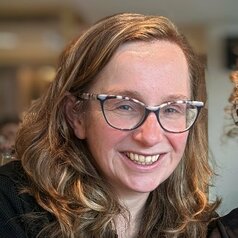
Elin Royles
Senior lecturer in politics, Aberystwyth University
Her main research interests are territorial politics and sub-state governance. She has published on the international relations of sub-state governments, inter-governmental relations, civil society and regional and minority language policy and planning. She is currently involved in an UK ESRC WISERD Civil Society funded research project on 'Everyday secessionism' and a James Madison Trust project on 'Assessing the UK’s new intergovernmental relations architecture post-Brexit'.
Less ![]()

Elina Hypponen
Professor of Nutritional and Genetic Epidemiology, University of South Australia
Professor Hyppönen is the Director of the Australian Centre for Precision Health at the University of South Australia Cancer Research Institute. She was recruited to the University of South Australia as the Professor in Nutritional and Genetic Epidemiology in 2013, following 12 years at the University College London, Great Ormond Street Institute of Child Health (London, UK).
She also holds appointments as a Honorary Professor at the University College London, Senior Principal Research Fellow at the South Australian Health and Medical Research Institute (SAHMRI) and as an Adjunct Professor in Epidemiology at the University of Tampere, Finland. Professor Hyppönen has an interdisciplinary academic background, with academic qualifications in epidemiology, medical statistics, nutrition and public health.
Professor Hyppönen has a H-factor of 67, having been cited over 17,000 times in the past five years only. She has authored more than 160 high-profile refereed publications and several book chapters. She leads the Nutritional and Genetic Epidemiology group which has a focus on using genetic tools to inform on dietary and lifestyle guidelines for optimal health. She has a long-term research interest in life-course and intergenerational epidemiology, and an extensive track record in gene and risk factor discovery. Her current interests are related to implementing phenomewide analyses and systems epidemiology approaches to establish effective strategies for disease prediction and prevention.
Less ![]()
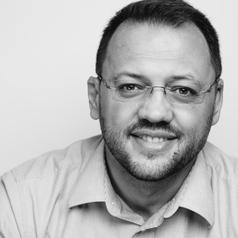
Elis Vllasi
Senior Research Associate & Lecturer in National Security & Foreign Affairs, University of Tennessee
Less ![]()

Elisa Alt
Assistant Professor in Entrepreneurship, King's College London
Elisa Alt is Assistant Professor in Entrepreneurship at King’s Business School, King’s College London. Elisa studies individual and organizational approaches to social intrapreneurship, with a focus on how individuals can become entrepreneurial change agents for positive social change. Her research has been published in the Journal of Business Ethics, Journal of Business Venturing, and Journal of Management Studies, among other outlets. Before obtaining her PhD from the University of Seville in Spain, she worked as a creative in the advertising industry in Brazil.
Less ![]()
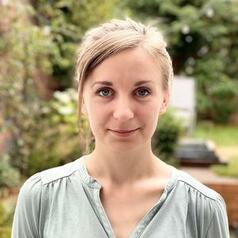
Elisa Becker
Postdoctoral Researcher, University of Oxford
I work on behaviour change interventions that help people reduce their meat intake, both online and in the real world. I am interested in emotional processing of meat and other underlying mechanisms of how and why certain interventions work.
I completed an undergraduate degree in Biology at Humboldt University in Berlin, and a Master’s degree in Sustainable Agriculture and Food Security at Newcastle University. During my PhD in Psychology (University of Exeter), I investigated the role of disgust in meat avoidance.
Less ![]()
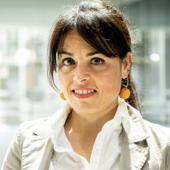
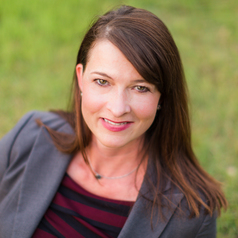
Elisa Borah
Research Associate, University of Texas at Austin
Elisa V. Borah, MSW, PhD is a research associate at The University of Texas School of Social Work at Austin within the Texas Institute for Excellence in Mental Health. She is currently principal investigator of an Engagement Award from the Patient Centered Outcome Research Institute to develop a network of veteran spouses that facilitates their involvement in research related to veteran families. In 2015, Borah served as the lead evaluator of Texas' statewide veterans’ mental health services, specifically examining the Texas Military Veteran Peer Network. Borah co-chairs the annual Military Social Work conference at The University of Texas at Austin. From 2010-2014, Borah served as director of research at the Fort Hood clinic of the Department of Defense-funded STRONG STAR PSD Research Consortium, at The University of Texas Health Science Center at San Antonio. Borah continues to study how to improve veterans and their families' access to evidence-based behavioral health treatments in community mental health settings.
Less ![]()

Elisa Clark
Ph.D. Candidate in Bioengineering, University of Washington
Elisa is investigating the molecular regulators of T-cell dysfunction in chronic infection and cancer.
Less ![]()



Elisa Pérez Ramírez
Viróloga veterinaria en Centro de Investigación en Sanidad Animal (CISA), Consejo Superior de Investigaciones Científicas (CSIC)
Less ![]()
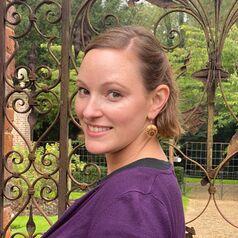
Elisabeth Gernerd
Lecturer in Design Cultures, De Montfort University
Dr Elisabeth Gernerd is a historian of fashion, art, and material culture in the eighteenth century. Her first book, The Modern Venus: Dress, Underwear and Accessories in the late 18th Century Atlantic World, was published by Bloomsbury in November, 2023. She has published articles and chapters on stockings, banyans, and feathers in Textile History (2015), Appearance(s) (2022), Eighteenth-Century Studies (2023), and Material Literacy in Eighteenth-Century Britain: A Nation of Makers, ed. Serena Dyer and Chloe Wigston Smith (2020). Her current research interests center on eighteenth-century dress and its relationship to politics, gender, graphic satire and global trade, as well as women's networks and correspondence.
Lis is Lecturer in Design Cultures at De Montfort University, Leicester, UK. She completed her PhD at the University of Edinburgh in 2016, and she also has previously taught at the London College of Fashion, London Metropolitan University, the University of Westminster, and Queen Mary University London. She was the inaugural Deidre Murphy Postdoctoral Fellow at Historic Royal Palaces, and has held fellowships with the Paul Mellon Center for Studies in British Art, UCLA, Winterthur Museum, Garden and Library, Colonial Williamsburg and Yale University. She is a founding member of the Sartorial Society Series.
Less ![]()
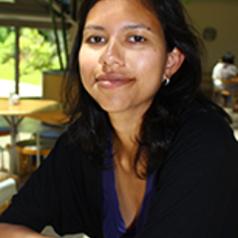
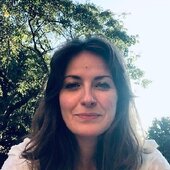
Elisabeth Schellekens
Chair Professor of Aesthetics and Head of Department of Philosophy, Uppsala University, Uppsala University
Less ![]()
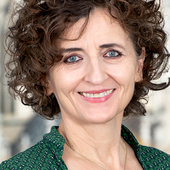
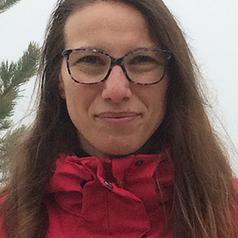
Elisabetta Versace
Senior Lecturer in Psychology, Queen Mary University of London
Living beings come to this world equipped with unlearned capacities to interact with the environment. For instance, chicks do not need any training to preferentially approach animate objects, orient in space and recognize familiar individuals. Other predispositions include specialized mechanisms for learning that are used in filial imprinting and language. My research is focused on the evolution of the fundamental building blocks of behaviour and cognition, predisposed behaviours and specialized learning mechanisms. My analyses span from behavioural to genomic data. Precocial species (e.g. chicks of the domestic fowl, tortoises) and insects are valuable models to conduct these studies.
Less ![]()
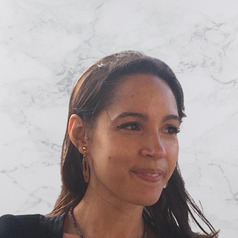
Elise Berlinski
I am currently an assistant professor at Copenhagen Business School, that I joined in October 2021, after obtaining my PhD degree in management science at ESCP Business School in management sciences. My research develops around two streams. One stream focuses on the organizing mechanisms of internet platforms and social media, and the mechanisms by which cross-platform organizations emerge, such as social movements, that I studied through the case of QAnon, the conspiratorial social movement. Another stream is interested in the manner by which artificial intelligence (AI) shapes organizations and society, focusing specifically on the socio-technical imaginaries of AI.
Originally, I a trained engineer, I hold a master degree (2013) from a French Grande École, ENSIMAG, and carried my last year at Imperial College (mathematics department). During my studies, I carried two research internships, one at INRIA in bioinformatics (4 months), and one at Imperial Colleger in the Electrical and Electronic Engineering Department in theoretical machine learning (6 months).
From 2013 until 2017 I worked in industry as a data scientist and a quantitative analyst.
Less ![]()

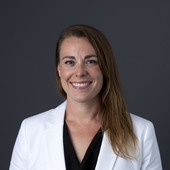
Elise Silva
Director of Policy Research at the Institute for Cyber Law, Policy, and Security, University of Pittsburgh
Less ![]()

Elise Waghorn
Lecturer, School of Education, RMIT University
I have extensive experience within the Early Childhood Sector, training and research. With over 16 years of diverse involvement in the field, I have worked as a kindergarten teacher, facilitated family day care, and teaching expertise at the tertiary level for the past 8 years. My extensive background allows me to approach my research project, exploring the everyday lifeworlds of children in Australia and their connection to policy and educational experiences in Hong Kong and Singapore, with a comprehensive perspective. Furthermore, my teaching endeavors, with a specific focus on early childhood pedagogical practices, have not only supported and influenced children's wellbeing but have also aspiring educators at the tertiary level. I also have an unwavering dedication to amplifying children's rights and ensuring their voices are heard and respected is a driving force behind her commitment to the field.
Less ![]()

Elise Ji Young Choe
Psychology Researcher, the Danielsen Institute, Boston University
Elise Ji Young Choe, M.S., Ph.D., is a Postdoctoral Research Associate at the Danielsen Institute. She completed her doctorate in Counseling Psychology at Georgia State University. Dr. Choe’s research and clinical interests include how forgiveness, humility, religion/spirituality, and other virtues may promote resilience for individuals involved in interpersonal conflict. She is also interested in virtues that promote helping behavior in bystanders. Dr. Choe is also interested in cross-cultural adaptation of interventions and models. Her dissertation examined the possible effects pressure to forgive may have on individuals forgiving a romantic partner over time.
Clinically, Dr. Choe has had training in CBT, DBT, and ACT approaches to short-term therapy in a variety of settings (e.g., college counseling centers, employee assistance program, community mental health). Dr. Choe has a feminist, multicultural lens for therapy, believing in equalizing the power within the therapeutic relationship, collaborating with the client, and attending to the intersections of the client’s diverse identities for a holistic approach to psychotherapy.
Less ![]()

Elisenda Ballesté
Profesora agregada en Microbiologia, Universitat de Barcelona
Investigadora y profesora de la Universitat de Barcelona. Microbióloga estudiando las bacterias en el medio acuático de una perspectiva OneHealth.
Less ![]()
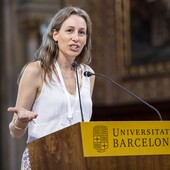
Elisenda Calvet Martínez
Profesora de Derecho Internacional Público, Universitat de Barcelona
Less ![]()
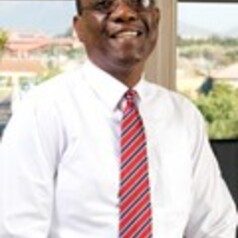
Elisha Chiware
Library Director and Associate Professor, Cape Peninsula University of Technology
Dr. Elisha Chiware is the Director of Cape Peninsula University of Technology Libraries in Cape Town, South Africa. Elisha has also served as the Secretary of IATUL (International Association of University Libraries Board). Dr. Chiware has worked in libraries and LIS schools in Namibia, Botswana, South Africa and Zimbabwe. He has also worked as an international information management consultant – establishing trade information centres in the East, South and Central African regions.
He holds a BA (Economics and Political Science) from the University of Zimbabwe, a Master of Library Science from Indiana University (Bloomington) and DPhil Information Science from the University of Pretoria.
Less ![]()
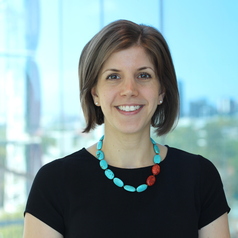
Elisha Josev
Senior Research Officer and Paediatric Clinical Neuropsychologist, Murdoch Children's Research Institute
Dr Elisha Josev is a Senior Research Officer at the Murdoch Children’s Research Institute, and an Honorary Research Fellow in the Department of Paediatrics at the University of Melbourne. She is also a practicing Paediatric Clinical Neuropsychologist. Dr Josev has a special interest in the neuropsychological and neurological effects of disruption to normal brain development, and the impact of chronic health conditions on adolescent brain functioning and behaviour. She currently coordinates the Paediatric Myalgic Encephalomyelitis/Chronic Fatigue Syndrome (ME/CFS) Research Program at the Murdoch Children’s Research Institute.
Less ![]()
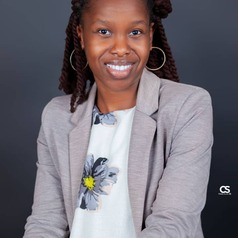
Elita Chamdimba
Research fellow, Centre for Social Research, University of Malawi
Elita Chamdimba is a Sociologist / Social Work expert who since 2018, has been a Research Fellow at the University of Malawi’s Centre for Social Research (CSR). Elita is currently studying for her PhD in Social Work at University of Strathclyde, Glasgow. She’s also the founder and former director (2014 - 2022) of Little Big Prints, a youth organization in Zomba (southern Malawi) equipping and supporting adolescent girls in rural secondary schools.
Elita's work and research interests focus on the lived experiences of adolescents on the margin (such as adolescents with albinism, adolescent mothers and girls in chid marriage in Malawi). She has applied participatory approaches for exploring adolescent's sense of belonging, social connectedness and identity. Elita’s areas of expertise expand to girls’ education, youth at risk, and intra-household power dynamics.
Less ![]()
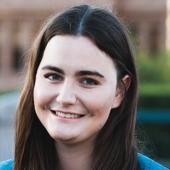
- Market Data





















